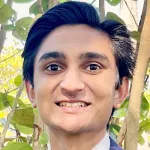
Dr. Paul Cheng is a Cardiologist at Stanford University School of Medicine in the Department of Medicine and a member of the Cardiovascular Research Institute. Dr. Cheng received his BEng in Chemical Engineering and BSc in biology at MIT. He subsequently completed his MD/PhD at UCSF working in the Srivastava lab studying how extracellular morphogenic signals affect cardiac development and fate determination of cardiac progenitors. Dr. Cheng completed internal medicine residency and cardiology fellowship at Stanford. His current clinical focus is in amyloidosis and cardio-oncology. During his post doctoral research in the Quertermous lab, he pioneered the application of single cell transcriptomic and epigenetic techniques to study human vascular diseases including atherosclerosis and aneurysm, and applied these techniques to investigate molecular mechanisms behind genetic risk factors for several human vascular diseases including atherosclerosis, and aortopathies such as Marfan's and Loey-Dietz syndrome.
The Cheng lab takes a patient-to-bench-to-bedside approach to science. The lab focuses on elucidating new pathogenic mechanisms of human vascular diseases through combing human genetics and primary vascular disease tissues, with high-resolution transcriptomic and epigenetic profiling to generate novel hypothesis that are then tested in a variety of in vitro and in vivo models. The lab is focused on two broad questions: (1) understanding the biological underpinning of the differences in diseases propensities of different arterial segments in an individual (i.e. why do you have atherosclerosis and aneurysms in certain segments but not others), and (2) understanding the role of perivascular fibroblast in human vascular diseases.

